MI’s Joel Liederman on CanadaAM to talk product development
Joel Liederman, vice-president of Physical Sciences, appeared on CanadaAM April 5, 2016 to talk about how to make a product. The interview is part of CanadaAM's "What's Next" segment on…
Joel Liederman, vice-president of Physical Sciences, appeared on CanadaAM April 5, 2016 to talk about how to make a product. The interview is part of CanadaAM's "What's Next" segment on…
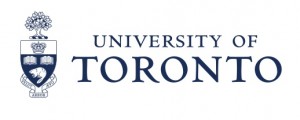 On Tuesday, July 28, 2015, the federal government announced a $114-million grant to cement the University of Toronto‘s position as one of the world’s leading centres for the design and manufacture of cells, tissues and organs to treat degenerative disease.
On Tuesday, July 28, 2015, the federal government announced a $114-million grant to cement the University of Toronto‘s position as one of the world’s leading centres for the design and manufacture of cells, tissues and organs to treat degenerative disease.
This announcement was covered in The Globe & Mail and Lab Products News, and by CBC.ca, CTV News and Global TV. MaRS Innovation was specifically mentioned as a commercialization partner in the Toronto Star‘s coverage.
As the university’s commercialization agent, MaRS Innovation welcomes this news and the downstream companies and technology licenses it will create. The Honourable Ed Holder, Minister of State (Science and Technology), made the announcement.
The funding will allow U of T, in partnership with its research partners and fellow MI members — The Hospital for Sick Children, the University Health Network and Mount Sinai Hospital — to conduct transformational research and clinical translation in regenerative medicine, enhance capability in synthetic biology and computational biology and foster translation, commercialization and clinical impacts.
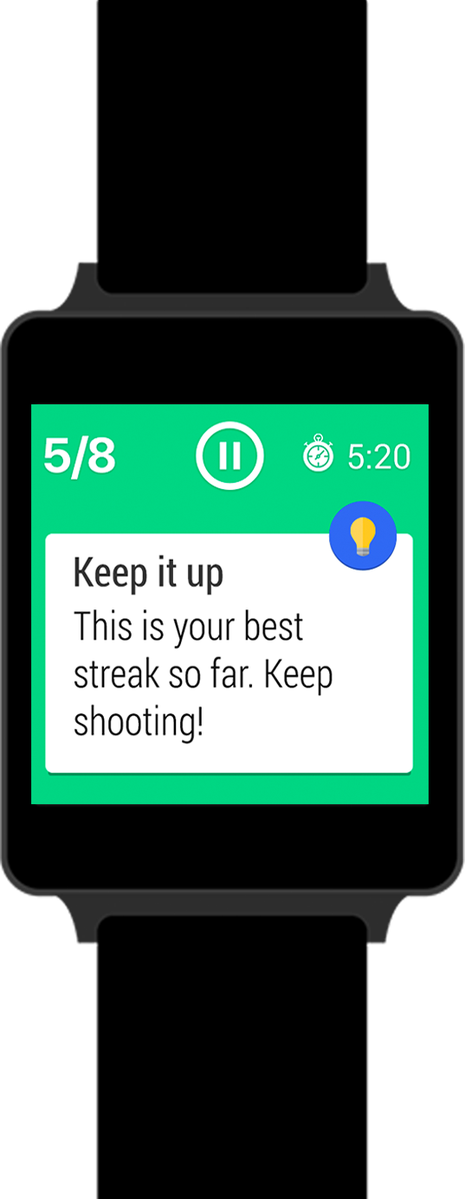
UTEST company Onyx Motion‘s lead product, Swish — a basketball virtual coach that currently works with Android Wear smartwatches to help basketball athletes to improve their shooting technique and emulate their heroes — was featured on Canada AM this morning.
Watch the clip of Onyx Motion’s Swish on Canada AM, CTV’s flagship morning show. Product feature plays after advertisements and begins at 1:40 mark.
Think you’ve got an equally great software-based idea for a start-up? UTEST is currently recruiting for its fourth cohort.
Tom Emrich, a Toronto-based consultant and blogger who specializes in mobile, tablets and wearable technology, presented Swish to Canada AM hosts Marci Ien, Beverly Thomson and Jeff Hutcheson using a Sony SmartWatch 3.
“The application takes your form, measures it and, using the motion sensor of the smartwatch, compares it to experienced players’ data and provides you with a tip,” Emrich explained. “It’s really trying to make sure your next shot is going to be a slam dunk.”
Onyx Motion is part of UTEST’s third cohort. The incubator program, which MaRS Innovation co-directs with the University of Toronto. UTEST is currently recruiting companies to its fourth cohort.
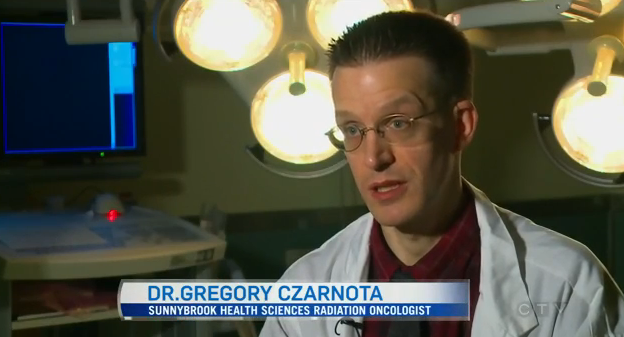
CTV National News featured WaveCheck’s crowdfunding campaign on December 15 in a report by Avis Favaro. The report included an interview with MaRS Innovation’s President and CEO, Dr. Raphael Hofstein (at the 1:37 mark).
William Tran, a researcher associated with the project at Sunnybrook Health Sciences Centre, was also interviewed on Canada AM on December 16.
WaveCheck, which closed its campaign December 4, was invented by Dr. Gregory Czarnota of Sunnybrook Health Sciences Centre and Prof. Michael C. Kolios of Ryerson University. WaveCheck uses ultrasound technology to show people with breast cancer if their chemotherapy is working within weeks.
While the Indiegogo campaign has concluded, Sunnybrook Foundation is now accepting donations flagged “WaveCheck” on behalf of the researchers through its website.
At campaign close, WaveCheck ranked in the top 0.005 per cent of health-related campaigns on Indiegogo, and was covered by CBC television and Metro Morning, the Toronto Star, Sing-Tao and MedCity News.
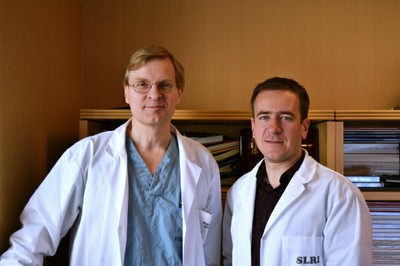
Mount Sinai’s Lunenfeld-Tanenbaum Research Institute has developed a new test that could make a big difference to men facing infertility.
A study published in a leading international journal, Science Translational Medicine, details the discovery of a key biomarker that can pinpoint the cause of infertility without the need for invasive surgery.
This story was covered by BBC News, ABC News’s “PM” with Mark Colvin, CTV News, CBC News, The Toronto Star, Globe and Mail, Ottawa Citizen and the Calgary Herald.
About half a million Canadian men are infertile, according to clinician-research Dr. Keith Jarvi. As a urologist who treats men with infertility, he knows how valuable this simple, inexpensive test could be. “Testing a semen sample can be done in the doctor’s clinic as it’s noninvasive and much easier for the patient than surgery,” he says.
Dr. Jarvi directs the Murray Koffler Urologic Wellness Centre, is head of Urology, and associate scientist at the Lunenfeld-Tanenbaum Research Institute. He is a professor of Surgery at University of Toronto.
MaRS Innovation, which commercializes discoveries made by University of Toronto hospitals and research institutes, is already working on the project, which Jarvi believes may lead to commercial tests within the next couple of years. [For more information, contact Barry Elkind].
 Over 340 people worldwide have joined WaveCheck‘s Indiegogo crowdfunding campaign to fund a breakthrough clinical technique for breast cancer that promises to revolutionize the way chemotherapy is monitored.
Over 340 people worldwide have joined WaveCheck‘s Indiegogo crowdfunding campaign to fund a breakthrough clinical technique for breast cancer that promises to revolutionize the way chemotherapy is monitored.
“Breast Cancer Awareness Month’s positivity makes it easy to overlook the fact that 60 to 70 per cent of chemotherapy treatments fail,” says Dr. Gregory Czarnota, chief of Radiation Oncology at Sunnybrook Health Sciences Centre and co-inventor of WaveCheck with Professor Michael C. Kolios of Ryerson University. “WaveCheck’s technology can tell people with breast cancer and their doctors if a particular chemotherapy is working in as little as four weeks.”
WaveCheck’s campaign made the Top 10 list for the most financially successful Canadian crowdfunding campaigns on both Kickstarter and Indiegogo in Globe and Mail’s Report on Small Business. CTV News Channel, CBC Toronto News (see the above clip), CBC Radio Canada and Canadian Healthcare Technology have also covered the project, along with Oshawa Today (radio), The Ryersonian and The Eyeopener.

Whirlscape Inc.‘s Minuum keyboard has enjoyed the kind of launch that start-up founders dream about yet few achieve.
UPDATE: Whirlscape’s Minuum Project has now cleared its $60,000 fundraising target. Mobile Syrup wrote a follow-up article on the campaign with details about the Wearable Development Kit. Their technology also got a second spot on CTV News‘s Tech Tuesday report and was featured on Global TV’s The Morning Show.
The little keyboard for big fingers, which launched an Indiegogo campaign a week ago today to support the launch of its Android keyboard app and a wearable development kit, is currently less than $4,000 from its crowd-funded stretch goal of $60,000.
The company was featured on CTV News on Mar. 24, 2013. The CTV video story and photos of CEO Will Walmsley and CTO Xavier Snelgrove are available on CTV’s website.
Start-up launches Indiegogo campaign to change future of mobile typing
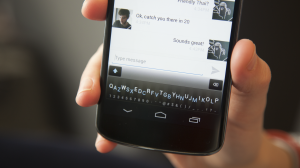
TORONTO, March 18, 2013 — Whirlscape Inc., a Canadian tech start-up, has developed Minuum, “the little keyboard for big fingers.”
Updated: The company has now cleared its $60,000 stretch goal to build a wearable development kit. Read the Mobile Syrup follow-up story.
Minuum’s crowdfunding campaign was covered by the Financial Post, CBC News, CTV News, the Toronto Star and Metro Morning (radio interview). They also did a second spot on CTV News‘s Tech Tuesday report and were featured on Global TV’s The Morning Show.
The story was also picked up by Fast Company, Mashable, CNET, TechCrunch, TechCrunch Japan, TechVibes, Huffington Post, Toronto Standard, BlogTO and Mobile Syrup.
Minuum is a tiny, one-dimensional keyboard that frees up mobile screen space while allowing fast, accurate typing. Its specialized, patent-protected auto-correction algorithm corrects highly imprecise typing.
This algorithm, based on the touchscreen and wearable device research of company founders, Will Walmsley (researcher) and Khai Truong (associate professor) at the University of Toronto, configures the difference between what you type and what you mean, in real time, getting it right even if you miss every single letter.